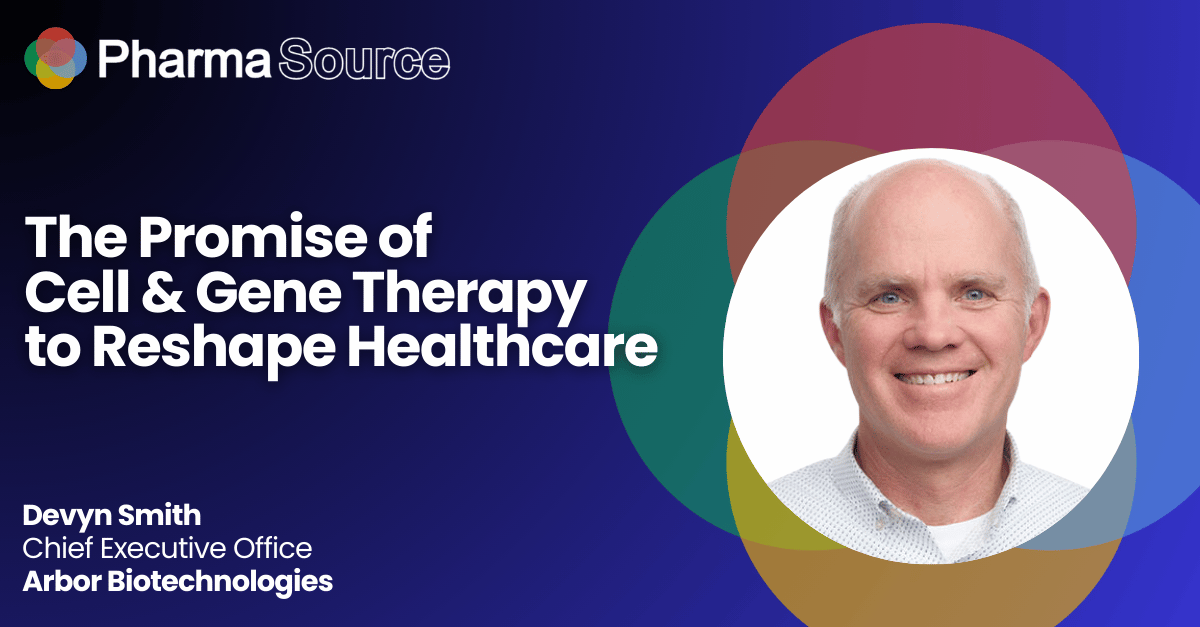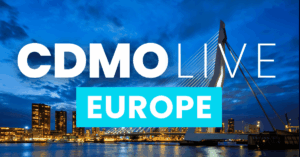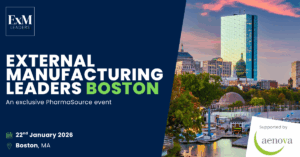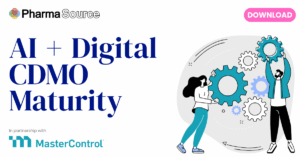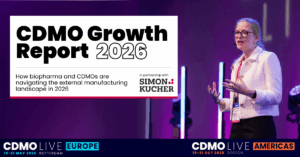“Gene editing and cell therapy, they’re going to be entrenched modalities, much like small molecules and antibodies are today, that will fundamentally reshape healthcare.” says Devyn Smith.
Devyn Smith, CEO of Arbor Biotechnologies and Chairman of the Alliance for Regenerative Medicine, brings a wealth of experience to the cell and gene therapy ecosystem. With a PhD in developmental biology and eight years in strategy consulting, Devyn’s journey led him to Pfizer, where he served as COO of their cell therapy group in Cambridge, UK, before a series of board roles at various biotechs.
In the latest PharmaSource podcast episode, he shares insights on the promise of cell and gene therapy to transform lives and the operational challenges the industry must overcome to realise this potential.
Recent Breakthroughs in Cell and Gene Therapy
Devyn highlights two recent approvals that have been game-changing for patients: Krystal Biotech’s gene therapy for Epidermolysis Bullosa and Vertex’s CRISPR-based Casgevy for sickle cell disease
“The patient stories are absolutely amazing and I think just are the tip of the iceberg of the opportunity space we have here,” he enthuses.
He notes that the gene editing arena is moving from simple knockdowns to sophisticated editing techniques. “Effectively, now we have the tools to be able to fix nearly any kind of genetic disease,” Devyn explains. “Now it’s a matter of making sure we can translate these tools safely to be used in humans.”
Devyn also highlights the convergence of better delivery approaches, such as AAV and non-viral approaches, with advances in cell therapy. He predicts, “Over the next rest of this decade, it’s going to be absolutely astounding, I think, on some of the things that occur that impact patients positively.”
Arbor Biotechnologies: Next-Generation Gene Editing
Arbor Biotechnologies, co-founded by CRISPR pioneer Feng Zhang and David Walt from the Wyss Institute and Harvard, is developing next-generation gene editing tools. Devyn elaborates:
“Arbor is a next-generation gene editing company… We are heavily focused on areas outside the liver, in particular CNS. We have several programmes targeting ALS, which is a devastating disease with effectively no real treatments for almost all the patients. We are filing our first IND later this year, and have a focus of three INDs filed in the next three years.”
The company’s technology allows for more flexible and precise gene editing, overcoming some limitations of CRISPR-Cas9. Devyn explains, “Cas9 is a great tool for starting but it has drawbacks. It’s quite large, so you can’t utilise it well in size-constrained delivery vehicles like AAV.”
Arbor’s approach involves developing a toolbox of gene-editing technologies with various “zip codes” that allow binding to anywhere in the DNA. This flexibility, combined with their small-sized technology, opens up new possibilities for targeting diseases outside the liver.
Industry Hurdles and Collaborative Solutions
As Chairman of the Alliance for Regenerative Medicine, Devyn identifies key challenges facing the industry:
- Regulatory streamlining: “How can we partner with the FDA or the European regulators to help make sure that we have a more streamlined and uniformed approach to thinking about areas like potency assays or other CMC topics that can cause slowdowns?”
- Access and reimbursement: “These therapies… are in some cases one and done, or in other cases, treated every five to 10 years. It requires a complete shift in how we think about reimbursement and access today.”
Devyn emphasises the importance of educating payers and reimbursement agencies about the long-term value of these therapies. He notes, “The benefits for them are significant downstream because suddenly you have a patient whose downstream costs should drop significantly, because you’re effectively providing a curative approach, or near curative approach, to those patients.”
Government Engagement and Policy Initiatives
The Alliance for Regenerative Medicine is actively engaging with lawmakers to promote better access to therapies. Devyn mentions two key bills:
- The MVP Act: Focused on rethinking reimbursement for cell and gene therapies
- A bill to enable better cross-state access to care for children.
“Our goal is to help educate and help them have the knowledge so they can make the right decisions that can better enable access for patients,” Devyn explains.
Devyn also discusses the annual “fly-in” where ARM members meet with lawmakers and legislators in Washington, D.C. to discuss the benefits of cell and gene therapies and address key areas where the industry needs support.
The Future of Cell and Gene Therapy
Looking ahead, Devyn is optimistic about the trajectory of cell and gene therapy:
“If you flash forward, there’ll be many approved therapies. We’ll begin to see an evolution of these therapies into bigger indications.”
He envisions a future where these therapies could tackle diseases of ageing, such as Alzheimer’s. “We’ll begin to shift from a world of treating symptoms and treating diseases that occurred to actually proactively getting ahead of the game and being preventive.”
“As you look forward 50 years from now, gene editing, cell therapy, they’re going to be entrenched modalities, much like small molecules and antibodies are today, that will fundamentally reshape healthcare. The future is absolutely amazing for what these types of therapies can do for mankind over the next 50 to 100 years, and beyond.”

